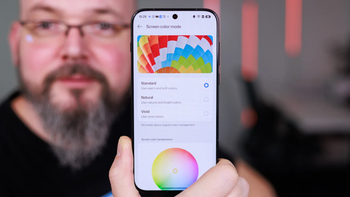Apple will stand its ground in new privacy policy, Chinese apps forced to comply

We аre still аwaiting Apple's iOS 14.5 update, the highlight of which has been the ATT feature, or App Tracking Transparency. It is this update which caused a fight between Facebook and Apple well before its release; it is also this update that will give users a whole new sense of security with regards to tracking and privacy—a hot topic in today's world.
ATT will require all apps to show a prompt requesting explicit permission before they can start tracking data in any way. Each iPhone and iPad comes with a factory-assigned IDFA number (Identification For Advertisers), which allows apps to track the device and its user. With iOS 14.5, unless the user agrees to data collection, apps and advertisers cannot access that IDFA, source user information, or do any sort of cross-app tracking. This step on Apple's part has only served to solidify the company's reputation for consistently providing one of the most safe and privacy-oriented mobile ecosystems.
Facebook, for one, has been loudly bemoaning this privacy-friendly change because if most people decline the initial prompt, the Facebook Audience Networks stands to lose millions in ad targeting revenue (although they didn't word it exactly that way).
Quite recently, developers in China backed by the government and big tech found a way to track people regardless of whether or not apps have been permitted access to the IDFA number. They figured out how to circumvent the requirement by developing an alternate system called CAID, which could also accurately associate an iPhone with its user's identity and track activity. Certain developers (including the creators of TikTok) are already testing CAID, and developers around the world have been applying for it.
Although Apple has been well aware of what is going on (and the China Advertising Association claimed it was "actively communicating with Apple" about it), until now, it had not acknowledged the direct violation of their upcoming privacy policy. Perhaps this is because it has too much to lose by falling into disfavor with the Chinese government and tech bigwigs. After all, the flagship iPhone 12 has been killing it over there. So, they said nothing.
At least, until a statement they just issued, covered by Bloomberg.
The App Store terms and guidelines apply equally to all developers around the world, including Apple. We believe strongly that users should be asked for their permission before being tracked. Apps that are found to disregard the user's choice will be rejected.
This appears to be an indirect response to the confusion around CAID and whether or not it would be allowed unhindered to turn the ATT feature useless. It seems that Apple has made its decision, and that it is willing to stand its ground and put people's right to privacy above the risk of less-than-friendly relations with the Chinese big tech firms. If an app is found to violate a user's wishes regarding tracking, it can expect to be removed from the App Store.
These are still only words, however, and we may have over a week left before both iOS 14.5 (which is already in beta) and CAID go public, and we can see what happens for ourselves. Read more: Zuckerberg pulls a reversal, says Facebook could benefit from Apple's App Tracking Transparency
Follow us on Google News













Things that are NOT allowed:
To help keep our community safe and free from spam, we apply temporary limits to newly created accounts: